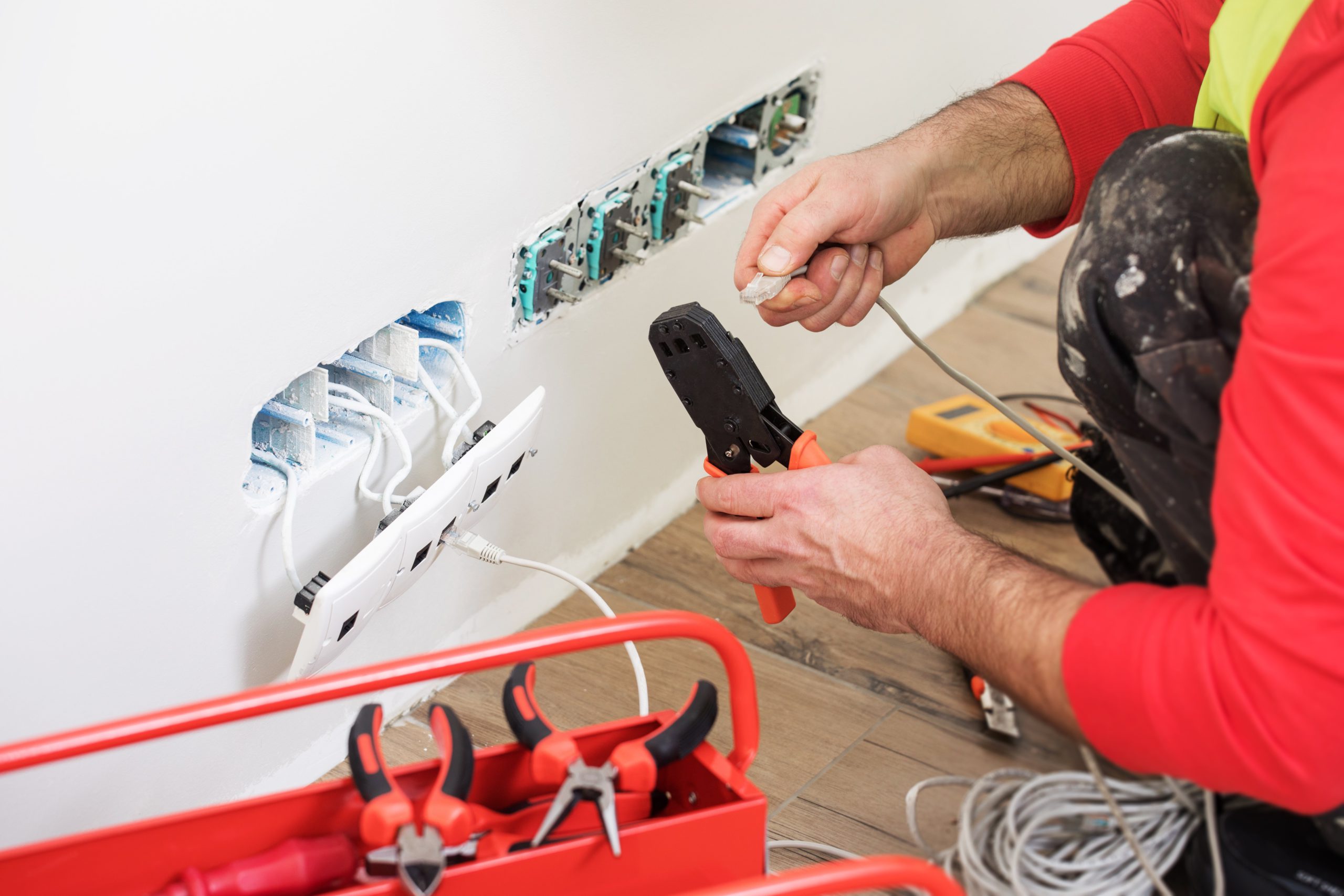Electricity is the lifeblood of modern homes, powering everything from lights and appliances to entertainment systems and heating/cooling units. As a seasoned electrician specializing in residential electrical services, I’ve encountered the crucial role that proper installation and repair play in maintaining the safety and functionality of homes. In this detailed guide, we’ll delve into the intricacies of electrical installation and repair, covering common issues, safety measures, and the importance of regular maintenance.
Understanding Residential Electrical Services
Residential electrical services encompass a wide array of tasks essential for maintaining the electrical systems in homes. Whether it’s installing new wiring during construction or repairing faulty outlets in an existing property, residential electricians are skilled professionals trained to handle various electrical needs. From ensuring proper wiring installations to upgrading electrical panels and outlets, residential electrical services cover all aspects of home electrical systems to ensure safety and functionality.
- Wiring Installation: Proper wiring installation is crucial for the safe and reliable operation of home electrical systems. Residential electricians are adept at installing new wiring for lighting, appliances, outlets, and more, adhering to industry standards and local building codes.
- Electrical Repairs: Electrical issues can arise unexpectedly, from malfunctioning outlets to circuit overloads. Residential electricians possess the expertise to diagnose and repair a wide range of electrical problems, restoring functionality and safety to homes.
Common Electrical Issues and Solutions
Despite advancements in electrical technology and safety standards, homeowners may encounter common electrical issues that require prompt attention. Identifying and resolving these issues promptly is vital for preventing accidents and ensuring the continued operation of electrical systems. Here are some prevalent electrical problems and potential solutions:
- Overloaded Circuits: Overloading circuits with too many devices can lead to overheating and fire hazards. Installing additional circuits or redistributing loads can help mitigate this issue.
Here are some of the potential dangers and consequences of overloading circuits:
- Fire Hazards: Overloading a circuit causes the wires to heat up, increasing the risk of fire. When wires become overheated due to excessive current flow, they can melt the insulation, ignite nearby combustible materials, or even spark a fire.
- Electrical Damage: Overloading circuits can cause damage to electrical components, such as outlets, switches, and circuit breakers. Excessive current flow can melt or damage these components, leading to the need for costly repairs or replacements.
- Electrocution Risks: Overloaded circuits increase the likelihood of electrical shocks and electrocution. If a circuit is overloaded, it can cause the insulation on wires to degrade, exposing live wires and increasing the risk of accidental contact.
- Equipment Failure: Overloading circuits can damage electrical appliances and devices connected to the circuit. Excessive current flow can cause components within appliances to overheat or fail prematurely, resulting in the need for repairs or replacements.
- Power Outages: In severe cases, overloading circuits can cause circuit breakers to trip or fuses to blow, resulting in power outages. This disruption not only inconveniences homeowners but can also cause damage to sensitive electronic equipment or appliances.
- Faulty Outlets: Loose or damaged outlets pose safety risks. Replacing faulty outlets and ensuring proper wiring connections can resolve this problem and prevent electrical hazards.
Here are some of the potential dangers associated with faulty outlets:
- Electrical Fires: One of the most significant dangers of faulty outlets is the risk of electrical fires. Loose or damaged wiring within the outlet can create sparks or generate heat, leading to the ignition of nearby flammable materials. Over time, the heat generated by faulty outlets can cause insulation to degrade and wires to melt, increasing the risk of fire.
- Electrical Shocks: Faulty outlets can also pose a significant risk of electrical shocks to individuals who come into contact with them. Loose wiring or damaged components within the outlet can expose live wires, increasing the likelihood of accidental contact and resulting in shocks or electrocution.
- Property Damage: In addition to the risk of fire, faulty outlets can cause damage to electrical appliances and devices connected to them. Fluctuating voltage or irregular electrical currents caused by faulty outlets can damage sensitive electronic equipment, leading to malfunctions or failures.
- Arcing and Sparks: Faulty outlets may produce arcing or sparks, especially when plugging or unplugging devices. Arcing occurs when electricity jumps across a gap between two conductors, such as loose wires or damaged connections within the outlet. These sparks can ignite nearby combustible materials, leading to fire hazards.
- Overheating: Another danger of faulty outlets is the risk of overheating. Loose or damaged wiring can generate excess heat, causing the outlet itself to become hot to the touch. Over time, this heat can degrade the outlet’s components and insulation, leading to further electrical problems and safety hazards.
Safety Tips for Homeowners
While professional electricians are best suited for electrical installation and repair tasks, homeowners can take several safety precautions to protect themselves and their properties from electrical hazards. Here are some essential safety tips to follow:
- Avoid DIY Electrical Work: Attempting electrical work without proper training and equipment can be hazardous. Always hire a licensed electrician for electrical tasks.
- Inspect Cords and Appliances: Regularly check electrical cords and appliances for wear, damage, or fraying. Replace damaged items promptly to prevent electrical hazards.
The Importance of Regular Maintenance
Regular maintenance is vital for ensuring the longevity and reliability of home electrical systems. Scheduled inspections and maintenance tasks can identify potential issues early on, preventing costly repairs and ensuring safety. Additionally, routine maintenance can improve energy efficiency and reduce the risk of electrical problems.
In conclusion, proper electrical installation, repair, and maintenance are essential for maintaining safe and functional homes. By understanding the significance of residential electrical services and adhering to safety measures, homeowners can safeguard their properties and ensure uninterrupted access to electricity for modern living.





Be First to Comment